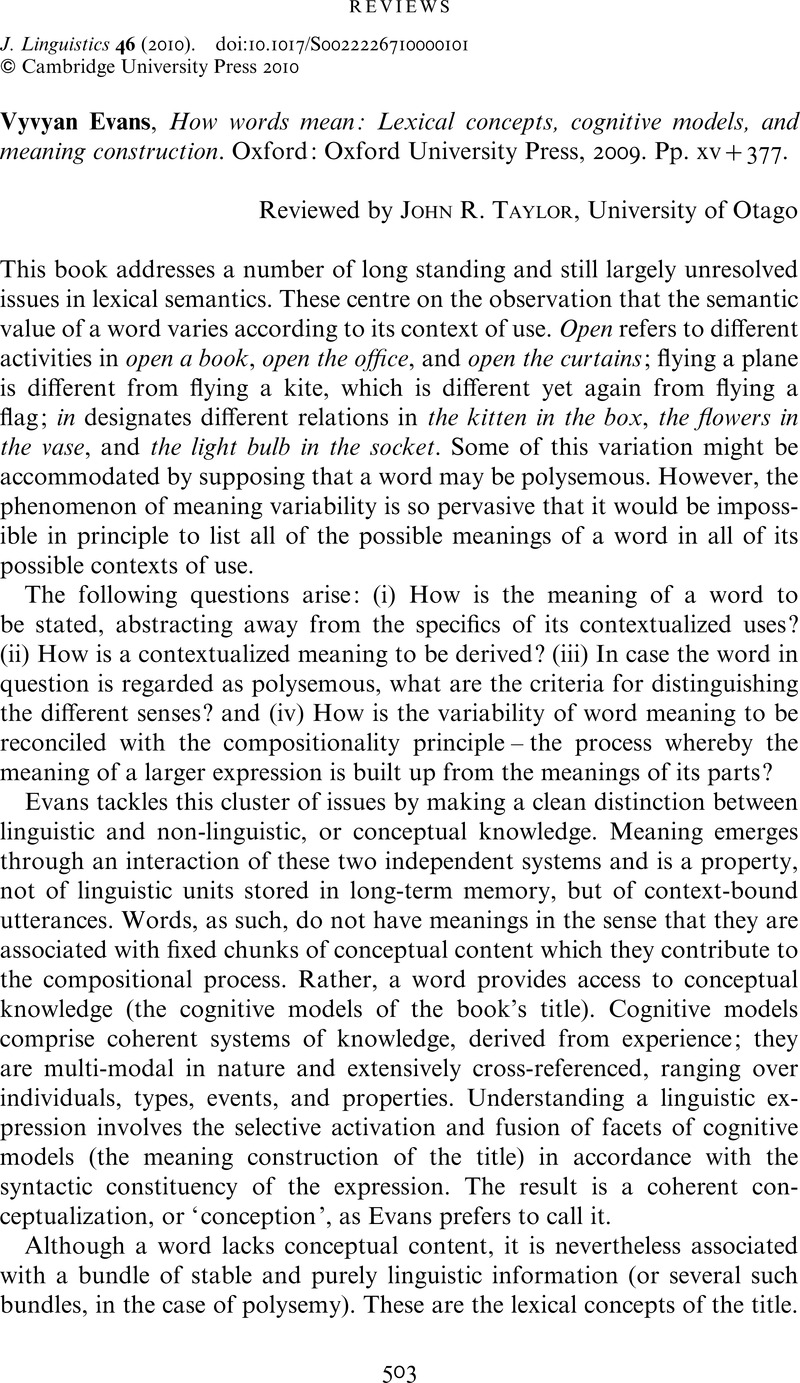Crossref Citations
This article has been cited by the following publications. This list is generated based on data provided by Crossref.
2018.
Kharkiv linguistic school. Heritage. Alexander Potebnja.
Cognition, Communication, Discourse,
Strelchuk, Elena
and
Lonskaia, Anna
2018.
Formation and Transformation of the Concept Russia in the Picture of the World of Modern American Students.
Theoretical and Practical Issues of Journalism,
Vol. 7,
Issue. 4,
p.
741.
Бєлова, М. О.
2021.
КУЛЬТУРНО МАРКОВАНА ЛЕКСИКА ЯК ЗАСІБ ОБ’ЄКТИВАЦІЇ КОНЦЕПТУ СТАТУС (на матеріалі британського художнього дискурсу).
Лінгвістичні дослідження,
Vol. 1,
Issue. 54,
p.
197.
Uberman, Agnieszka
2024.
THE COGNITIVE FRAME OF WAR: CONTEMPORARY EXPANSIONS.
Lege artis. Language yesterday, today, tomorrow,
p.
104.
Uberman, Agnieszka
2024.
THE COGNITIVE FRAME OF WAR: CONTEMPORARY EXPANSIONS.
Lege artis. Language yesterday, today, tomorrow,
p.
104.



